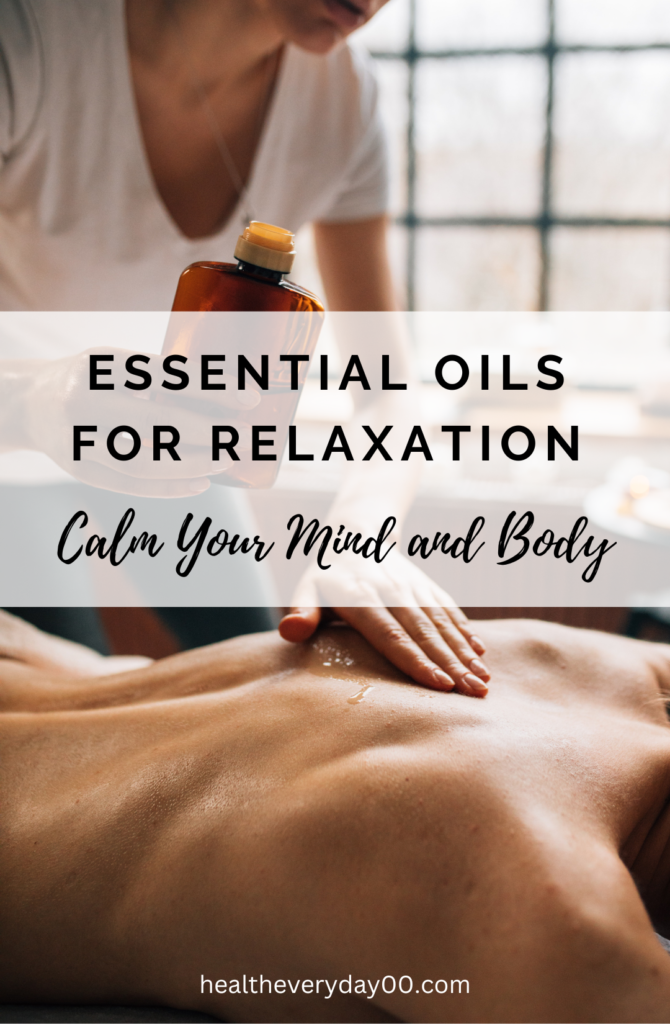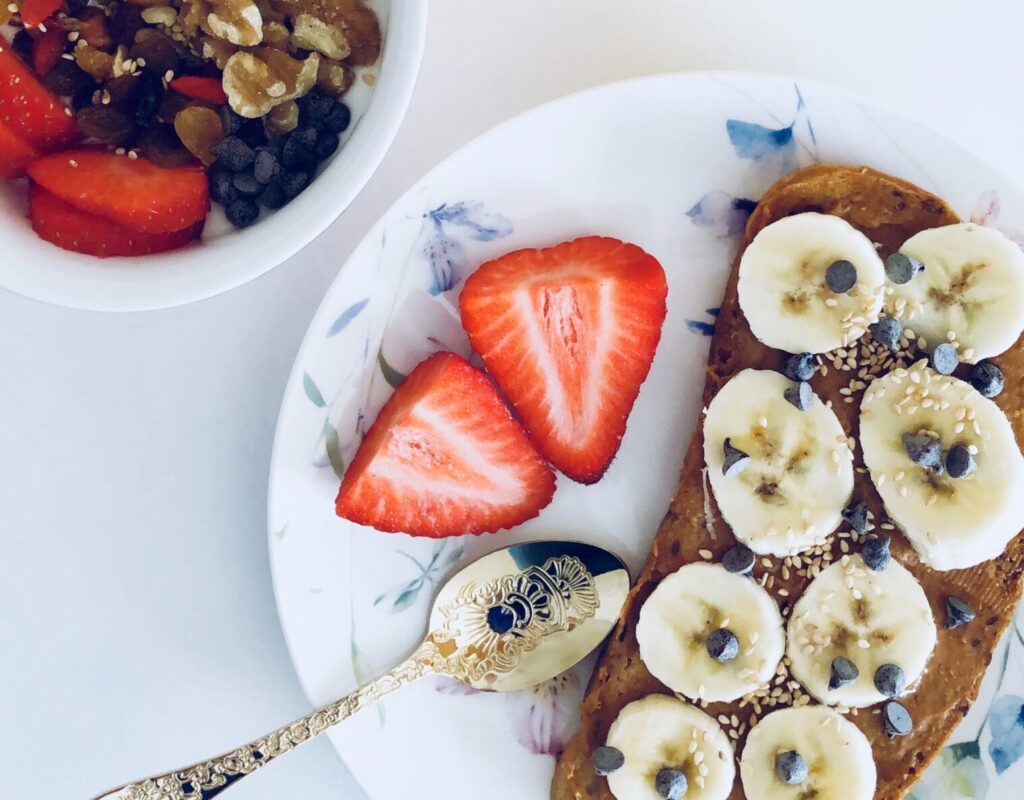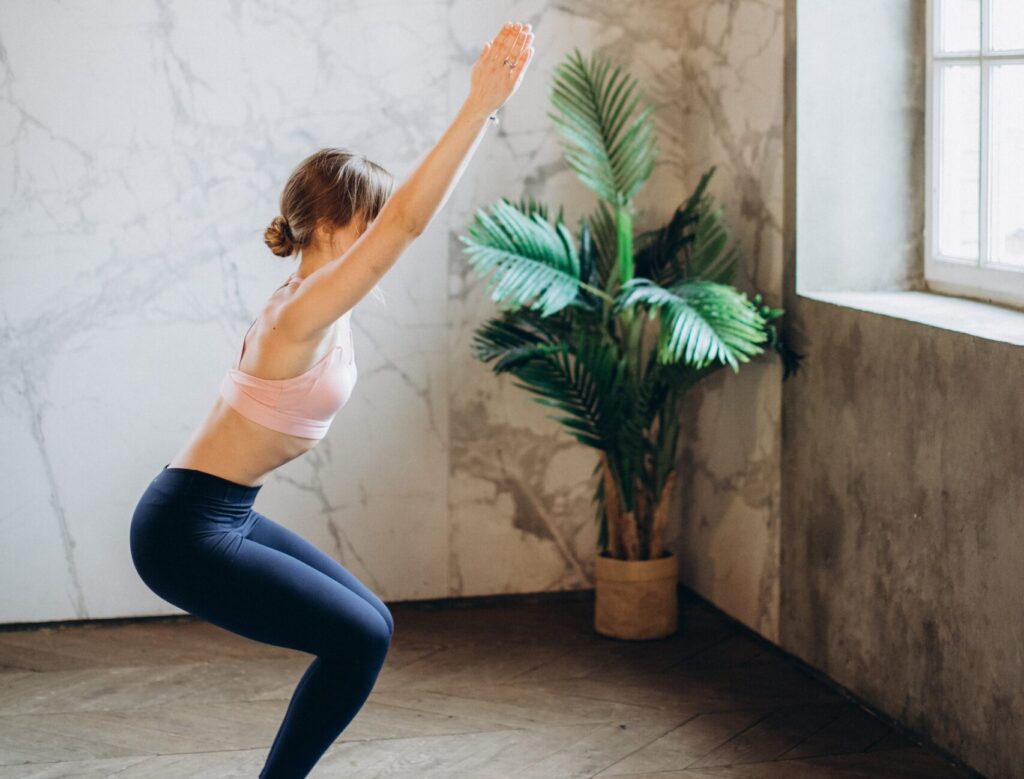Essential Oils for Relaxation: Calm Your Mind and Body

Introduction
In today’s fast-paced world, stress and anxiety are becoming increasingly common. It’s essential to find effective ways to relax and rejuvenate our minds and bodies. One natural and powerful solution is the use of essential oils. In this article, we will explore the best essential oils for relaxation, their benefits, and how to use them safely and effectively.
What Are Essential Oils?
Essential oils are concentrated liquids derived from plants containing their natural aroma and properties. They have been used for thousands of years for various purposes, such as medicine, cosmetics, and perfumery.
Extraction Methods
There are several methods to extract essential oils, including steam distillation, cold pressing, and solvent extraction. Each method has its advantages, but steam distillation is the most common method as it produces pure, high-quality essential oils.
Importance in Aromatherapy
Aromatherapy is a holistic healing practice that uses essential oils to improve physical, emotional, and mental well-being. The aromatic compounds in essential oils can stimulate the olfactory system, which directly affects our emotions and mood, making them a powerful tool for relaxation.
Benefits of Using Essential Oils for Relaxation
Essential oils offer numerous benefits when it comes to relaxation, including:
- Stress Relief: The soothing aromas of essential oils can help reduce stress and anxiety by calming the nervous system.
- Improved Sleep Quality: Many essential oils have sedative properties that can improve sleep quality and help combat insomnia.
- Enhanced Mood: The uplifting and mood balancing properties of certain essential oils can alleviate feelings of sadness, irritability, and depression.
Top Essential Oils for Relaxation
Lavender (Lavandula angustifolia)
Lavender is one of the most well-known and versatile essential oils. Its calming and soothing properties make it a popular choice for promoting relaxation, reducing stress, and alleviating anxiety. Studies have shown that lavender essential oil can help improve sleep quality and reduce the symptoms of mild insomnia. Its floral and slightly sweet aroma makes it a pleasant addition to various relaxation methods, such as diffusers, massage oils, and bath blends.
Ylang Ylang (Cananga odorata)
Ylang Ylang essential oil has a unique, sweet, and exotic floral scent that is renowned for its relaxing and calming effects. It’s been shown to help lower stress levels, reduce anxiety, and balance emotions. Ylang Ylang is also known for its ability to promote feelings of happiness and sensuality, making it a popular choice for romantic and intimate settings. It blends well with other essential oils, such as lavender, bergamot, and jasmine, to create soothing and calming combinations.
Chamomile (Matricaria chamomilla or Chamaemelum nobile)
Chamomile essential oil is available in two primary varieties: Roman chamomile and German chamomile. Both types are known for their calming and soothing effects, with Roman chamomile being the milder of the two. Chamomile essential oil is commonly used for promoting relaxation, combating insomnia, and reducing stress and anxiety. Its gentle and sweet aroma makes it suitable for use with children and in blends for calming the mind and body.
Bergamot (Citrus bergamia)
Bergamot essential oil has a refreshing, citrusy, and slightly floral scent that is known for its mood-enhancing and stress-relieving properties. It has been found to help reduce anxiety, balance emotions, and promote emotional well-being. Bergamot is also known for its uplifting and energising effects, making it ideal for daytime use when you need a mood boost or a moment of calm. Be aware that bergamot essential oil is phototoxic, so it’s crucial to avoid direct sun exposure on the skin after topical application.
Frankincense (Boswellia carterii or Boswellia sacra)
Frankincense essential oil has a rich, warm, and earthy aroma that is known for its grounding and calming effects. It has been used for centuries in spiritual and meditative practices to help reduce feelings of stress, promote inner peace, and encourage mindfulness. Frankincense essential oil can also help improve respiratory function, making it a beneficial addition to relaxation practices, such as deep breathing exercises and meditation.
These top essential oils for relaxation can be used individually or in combinations to create customised blends tailored to your specific needs and preferences. Experiment with different oils and methods of use to find the perfect approach to promote relaxation and calm your mind and body.
How to Use Essential Oils for Relaxation
There are several methods for using essential oils to promote relaxation and create a calming atmosphere. Here’s a more detailed description of each method:
Diffusion
Using a diffuser or oil burner is an easy and effective way to disperse the aroma of essential oils throughout your space. Add a few drops of your chosen essential oil to the diffuser or oil burner along with water (as per the device’s instructions) and let the soothing scents fill the air. You can experiment with different oils and combinations to create your ideal relaxation blend. Diffusion is an excellent method for stress relief, improving sleep quality, and creating a calming atmosphere.
Topical Application
Applying essential oils directly to your skin can provide localised benefits and allow you to enjoy their relaxing scents throughout the day. To do this safely, mix a few drops of your chosen essential oil with a carrier oil (such as coconut, almond, or jojoba oil) to dilute it and prevent skin irritation. Apply the mixture to pulse points, like your wrists, temples, or behind your ears, for a calming effect. Remember to perform a patch test before using a new essential oil to check for potential allergic reactions.
Massage
Combining essential oils with massage can enhance the relaxation experience and provide a deeper sense of calm. Mix a few drops of your chosen essential oil with a carrier oil and use it to massage your body or specific areas, such as your neck, shoulders, or feet. Massage can help release muscle tension, improve circulation, and promote overall relaxation.
Bath
Adding essential oils to your bathwater is a luxurious way to engage all your senses and enjoy a relaxing soak. Mix a few drops of your chosen essential oil with a carrier oil, bath salts, or an unscented bath gel before adding it to the water to ensure even dispersion. Soaking in a warm, fragrant bath can help alleviate stress, soothe your muscles, and create a calming atmosphere.
Inhalation
Directly inhaling essential oils can provide instant relaxation and stress relief. Place a few drops of your chosen essential oil on a tissue, cotton ball, or personal inhaler and inhale the aroma deeply. This method is particularly useful when you need a quick stress reliever or to help calm your mind during moments of high anxiety.
Pillow Spray
Create a relaxing environment for sleep by making a DIY essential oil pillow spray. Combine a few drops of your chosen essential oil (such as lavender or chamomile) with water and a small amount of alcohol (like vodka) in a spray bottle. Shake well and spritz onto your pillow and bed linens before going to sleep to help promote a restful night’s sleep.
Remember to always follow safety precautions when using essential oils and consult a healthcare professional if you’re unsure about their use or have any health concerns. By experimenting with different essential oils and methods of use, you can find the perfect approach to help you relax, unwind, and calm your mind and body.
Precautions When Using Essential Oils
Essential oils are potent and should be used with caution. Some general precautions include:
- Dilute essential oils with a carrier oil before applying them to your skin.
- Keep essential oils out of reach of children and pets.
- Avoid using essential oils if you are pregnant or nursing without consulting a healthcare professional.
- Always perform a patch test before using a new essential oil to check for possible allergic reactions.
Suggestion for Supplements
In addition to essential oils, there are several natural supplements that can support relaxation and stress reduction. Here are some popular options:
Valerian Root
Valerian root is an herbal supplement known for its calming effects. It has been used for centuries to treat anxiety, stress, and insomnia. Studies have shown that valerian root can help improve sleep quality and reduce the time it takes to fall asleep. It’s available in various forms, such as capsules, tablets, and teas.
Melatonin
Melatonin is a hormone naturally produced by the body to regulate sleep-wake cycles. It’s commonly used as a supplement to help combat sleep disturbances, jet lag, and insomnia. Melatonin supplements can be found in various forms, including tablets, capsules, and gummies. It’s essential to start with a low dose and follow the directions on the product label.
Magnesium
Magnesium is an essential mineral that plays a vital role in many bodily functions, including muscle relaxation and nervous system regulation. Studies suggest that magnesium supplementation can help reduce anxiety, improve sleep quality, and alleviate symptoms of stress. Magnesium is available in various forms, such as tablets, capsules, powders, and topical creams.
L-Theanine
L-Theanine is an amino acid naturally found in green tea leaves. It’s known for its calming effects and its ability to promote relaxation without causing drowsiness. L-Theanine has been shown to help reduce stress and anxiety, as well as improve focus and concentration. You can find L-Theanine supplements in the form of capsules, tablets, and powders.
Ashwagandha
Ashwagandha is an adaptogenic herb commonly used in Ayurvedic medicine to help the body cope with stress. Research has shown that ashwagandha can help reduce cortisol levels, improve stress resilience, and promote relaxation. Ashwagandha supplements are available in various forms, such as capsules, tablets, and powders.
When considering using supplements for relaxation, it’s essential to consult a healthcare professional to ensure they are appropriate for your individual needs and to determine the correct dosage. Always follow the directions on the product label and be aware of any potential interactions with medications or other supplements you may be taking.
Conclusion
Essential oils offer a natural and effective way to promote relaxation and reduce stress. By choosing the right oils and using them safely, you can enjoy their numerous benefits and enhance your overall well-being. So, explore the world of essential oils and find the perfect combination to help you calm your mind and body.



